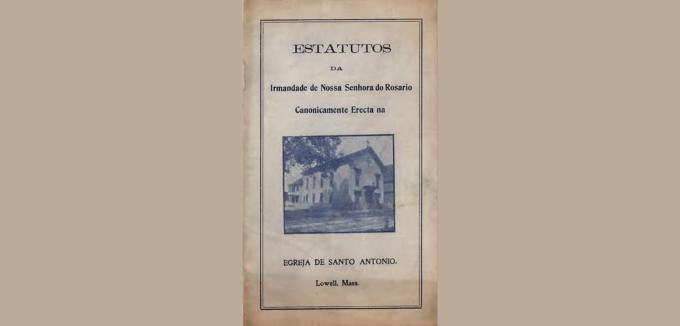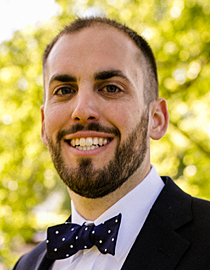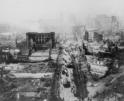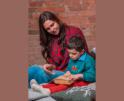
Culture

We hope our readers appreciate this significant undertaking and will visit the website to view these treasures, which are now preserved in a digital format and made accessible to all.

Lester
We are happy to announce that select parish records from St. Anthony, Lowell, are now free to view online via a collaboration between the parish and the Portuguese American Digital Archive (PADA) hosted by the University of Massachusetts, Lowell.
The PADA was established in 2020 and, using a community-driven approach, "it seeks to represent a diversity of experiences in the lives of the region's Portuguese, spanning multiple generations, beginning in the 19th century, and encompassing family, work, business, leisure, social activism, politics, arts, sciences, and literature."
Its goal is to collect and preserve materials related to the Portuguese community in the Greater Boston Area and seeks to "reveal the many ways in which generations of Portuguese shaped the region's culture and society" and document "the struggles and achievements of individuals, families, and organizations."
The collection contains a variety of materials, including family papers, institutional records, oral history transcripts, audio recordings, and photographs. It can be accessed by visiting umlportuguesearchives.omeka.net.
The first Portuguese priest in Massachusetts is believed to have arrived at New Bedford in 1866 but died the same year. It is unclear whether one or two other priests made brief visits until the notable arrival of Father Joao Ignacio at St. Mary, New Bedford, in January 1869. He helped the parish raise funds to purchase land on which would eventually stand St. John the Baptist, recognized as the first Portuguese parish in New England, before departing for Boston in 1873 and founding the first Portuguese parish in that city, St. John the Baptist in the North End.
Around this time were the formative years of the Portuguese community in Lowell and, by the late 1890s, Father Antonio Pimentel would celebrate Mass with them in the hall across the street from St. Peter Parish. As their numbers increased, and with the blessing of Archbishop John Williams, parishioners formed a committee and began raising money for their own parish church in 1900.
The following year, a former Primitive Methodist Church on Gorham Street was purchased and dedicated to St. Anthony on May 19, 1901. Within a few years, the church was already proving too small for the burgeoning parish, and land for a new church was purchased on Central Street. The cornerstone was dedicated on Thanksgiving Day, 1907, by Cardinal William O'Connell, but within a year, funds were exhausted, and a temporary flat roof was constructed over the basement church so it could be used.
Work was not resumed until the parish had something of a rebirth under Father Joseph T. Grillo, appointed pastor in 1924, who oversaw the installation of a new floor, brighter sanctuary, and new statuary. It would be left to his successor, Father John F. Silva, to finally finish the superstructure in 1960.
From the time the Gorham Street church was occupied, lay organizations such as the Holy Rosary Sodality and Holy Ghost Society were founded and became an integral part of parish life. Father Grillo, who had revitalized the parish church, did the same to those parish organizations and others such as the Young Ladies' Sodality, Holy Name Society, and St. Vincent de Paul Society. Furthermore, he supported new parish activities such as athletic competitions, a fife and drum corps, and reinstated the annual parish picnic.
PADA focuses on items related to community organizations and activities, such as those at St. Anthony. We hope our readers appreciate this significant undertaking and will visit the website to view these treasures, which are now preserved in a digital format and made accessible to all.
A special thanks to all those involved with PADA, especially Dr. Frank Sousa and Dr. Gray Fitzsimons for inviting St. Anthony to participate in the project. And special recognition for Ms. Nikki Tantum, PADA archivist, who helped the parish identify culturally and historically significant materials, then organized, described, and digitized them. And finally, to Father Nicholas Sannella and Deacon Carlos DeSousa of St. Anthony Parish for working with PADA to make their parish records available to a wider audience.
Those wishing to contribute to PADA may inquire by emailing PADA@uml.edu or calling 978-934-5029. Opportunities include donating records, conducting or being the subject of oral histories, and assisting with describing or translating materials.
- Thomas Lester is the archivist of the Archdiocese of Boston.
Recent articles in the Culture & Events section
-
Boston and the nation respond to the San Francisco Earthquake of 1906Thomas Lester
-
See you in the storyLaura Kelly Fanucci
-
'Dignitas' and the mediaRussell Shaw
-
Scripture Reflection for April 14, 2024, Third Sunday of EasterDeacon Greg Kandra
-
St. Helena's House is established in the South EndThomas Lester


















